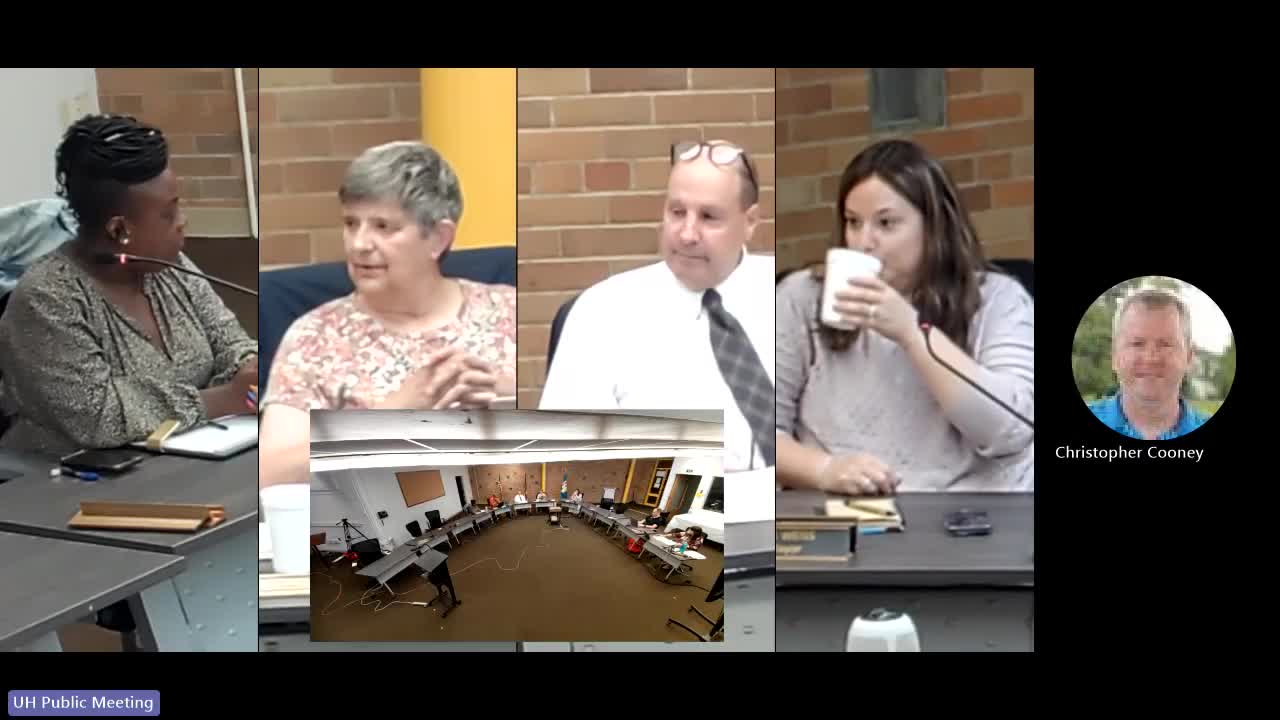University Heights committee asks housing staff to pause enforcement of 2025 sidewalk citations
Get AI-powered insights, summaries, and transcripts
Subscribe
Summary
The University Heights Building and Housing Committee on Aug. 20 voted to ask the housing department to pause enforcement of sidewalk citations issued during the 2025 exterior-inspection cycle while the city examines program changes and a possible cost-share repair program.
The University Heights Building and Housing Committee on Aug. 20 voted to ask the housing department to pause enforcement of sidewalk citations issued during the 2025 exterior-inspection cycle while the city examines program changes and a possible cost-share repair program.
Committee Chair Winifred Weiser opened the special meeting by saying the session was called “to discuss specifically exterior inspections,” and reminded attendees that Section 14.74.12 of the city ordinances authorizes exterior inspections and that the rules governing how the city conducts them changed after a 2023 Ohio court ruling. “The purpose of exterior inspections is not to penalize residents, but rather to help ensure that our housing stock remains as good as possible,” Weiser said.
Nut graf: The committee focused on whether the current inspection process — limited by the court ruling to sidewalk- or curb-side visual checks unless an inspector knocks and gains permission — can meet the city’s goals. Members and residents described an uptick in sidewalk-related complaints and cited costs, contractor availability and tree-root damage as barriers. The committee voted to request that the housing department use its discretion to defer enforcement of outstanding 2025 sidewalk citations (excluding point-of-sale violations) while council and staff develop a possible ordinance and a coordinated repair program.
Committee members and staff described the operational impact of the court ruling and details of the 2025 inspections. Housing Director Markelle Davis told the panel that the department performed about 645 exterior inspections this year; of those, 294 properties had no violations. Davis said the most common sidewalk-related remediation counts in the department’s preliminary tally were: 88 instances where blocks would be relevelled, 86 where blocks would be replaced, and 46 where repairs were recorded. Davis also said inspectors are conducting most exterior inspections from the sidewalk and are not consistently knocking to seek permission to inspect the full property.
Councilman Brian King and other committee members discussed technical and program options the city might use to reduce homeowner costs. King suggested using mapping tools to reduce unnecessary door approaches and encouraged maintaining photographic records of violations. Several committee members proposed separating sidewalk work from exterior inspections into a distinct, city-managed program that could bundle work, schedule arborist/root grinding and concrete crews together, and solicit contractor bids for multiple blocks at once to lower per-unit costs.
Residents who spoke at the meeting described long-running problems and high out-of-pocket costs. Bill Woods, a longtime resident, said an oak tree at the curb has repeatedly lifted sidewalk blocks and that he had paid roughly $1,200 in 2020 for temporary work that subsequently failed. Woods told the committee, “We pay taxes. We need help.” Resident David Cohen urged clearer guidance in citation letters, writing that notices “include no resources attached for here's how you can find out how to get this done” and requested checklists and links to approved contractors or programs.
Committee members outlined next steps. The panel asked staff and the law director to draft options for a city program that might: (1) exclude sidewalks from the scope of routine exterior inspections and treat them as a separate capital or grant-funded program; (2) use a cost-share or bonded approach to lower homeowner costs; (3) create an organized contractor bid process and coordinate arborist/root grinding and concrete work to reduce trip charges; and (4) update citizen-facing letters to explain reinspection procedures and permit requirements. The committee also asked the housing department to begin sending “no violations” letters to properties that pass inspection.
Formal action: After discussion the committee made a motion to request the housing department to forgo enforcement action on outstanding 2025 sidewalk citations issued through the exterior-inspection program, excluding point-of-sale violations. The committee recorded unanimous assent. Housing Director Markelle Davis indicated she would use departmental discretion to delay enforcement while staff and council pursue a legislative solution.
Ending: Council members said the pause and the repository of options will not be indefinite: staff and the law director were asked to draft ordinance language and program proposals for consideration at subsequent meetings. The committee scheduled follow-up work on a sidewalk ordinance and a coordinated repair program; the committee also noted continued need to balance tree maintenance, sidewalk safety and the city’s budget constraints.
